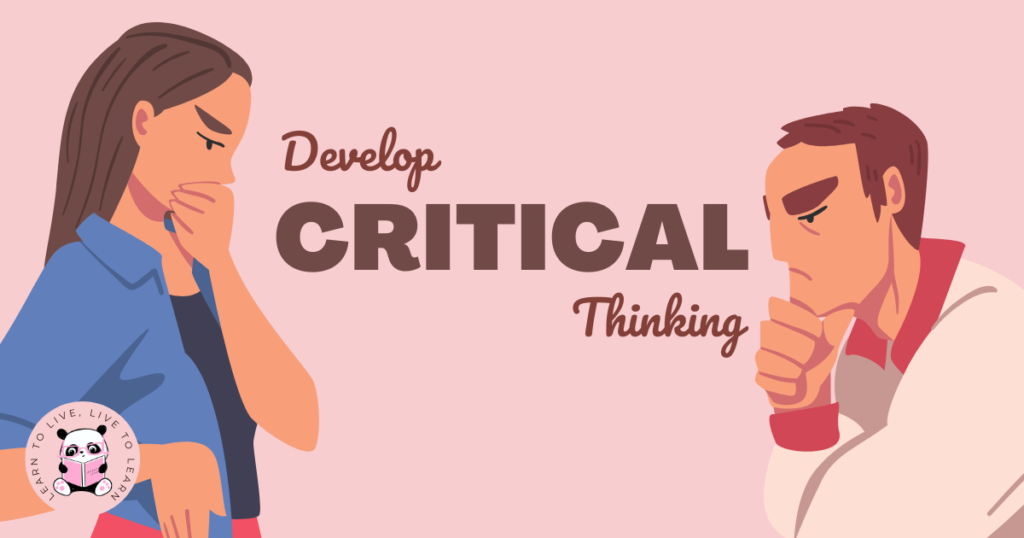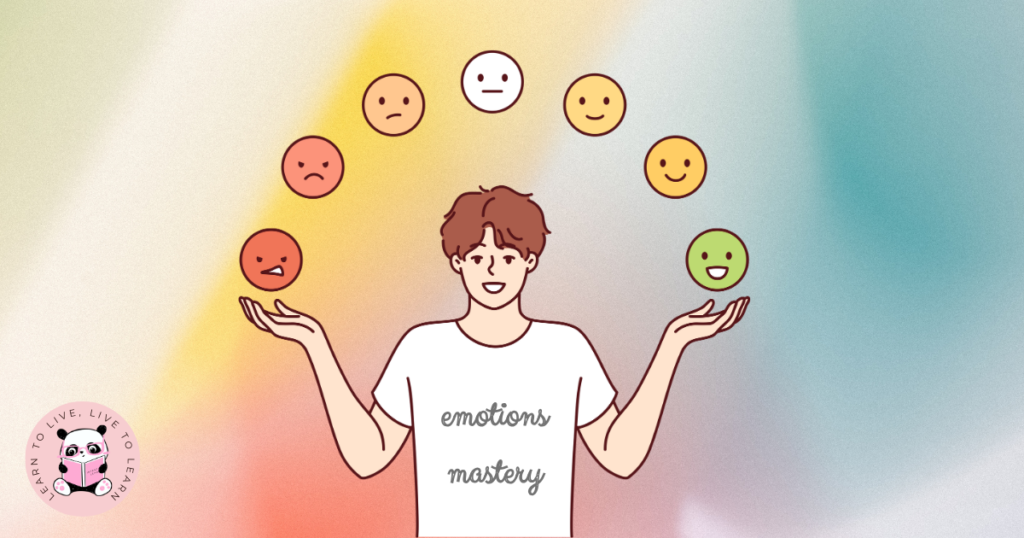How To Think Critically | 7 Essential Hacks
Written by Michelle Ong | February 17, 2024 | Growth

Critical thinking is crucial for personal growth. In this article, I share 7 essential hacks that have helped me enhance my critical thinking skills.
In a world full of scams and misinformation, critical thinking is my go-to tool for finding the truth. It helps me spot red flags, verify details, and make informed decisions. Whether it’s a too-good-to-be-true offer or complex problem, I use critical thinking to evaluate options and avoid logical fallacies. By carefully assessing information and communicating accurately, I avoid spreading falsehoods. Let’s explore how you can sharpen this crucial skill and navigate information more effectively.
1. Don’t Assume
“The greatest enemy of knowledge is not ignorance, it is the illusion of knowledge.”
Stephen Hawking
I’ve learned the hard way that making assumptions without careful thought can really cloud my judgment and lead to misunderstandings. For instance, if I assume a friend is upset without asking them directly, it can create unnecessary confusion.
Decisions based on incomplete or incorrect information are risky. I’ve made mistakes before by assuming that an expensive product is always high quality without checking the details first. Now, I make it a point to double-check and verify before making decisions.
Relying only on past experiences can also be misleading. Just because a method worked well before doesn’t mean it will work the same way now. I’ve found it’s smarter to assess current conditions before moving forward.
2. Dig Deeper
“The path to wisdom is paved with questions.”
I’ve found that making asking questions my first instinct has been crucial for gaining a deeper understanding and uncovering underlying reasons. It’s a humble approach to learning because no one has all the answers. By being curious and investigating, I challenge the status quo and get closer to the truth.
In some cultures, asking questions can be discouraged, which sometimes makes people act out or become overly reserved. So it’s important to be mindful of the context and the people involved. I consider whether it’s the right moment to ask and whether to do so privately or publicly. Respecting others’ feelings and privacy ensures that my questions are both effective and considerate.
3. Keep An Open Mind
“The mind is like a parachute; it only functions when open.”
I’ve learned that keeping an open mind is essential for critical thinking. It allows me to explore different perspectives, avoid confirmation bias, and better understand complex issues. Being open-minded means I stay skeptical, avoid jumping to conclusions, and recognize that I don’t have all the answers.
Regularly reflecting on my beliefs and experiences helps me grow and evolve. Embracing new information and constructive feedback, even criticism, is key to my personal development and problem-solving skills.
4. Filter Out The Noise
I’ve found that what I consume directly shapes my thinking. With so much information out there, critical thinking is essential for sorting fact from fiction. I choose high-quality content that challenges my assumptions and broadens my perspective.
Intentional learning—where I set goals and focus on areas for improvement—helps me develop the analytical skills I need to make informed decisions. I make sure to be mindful of my sources and prioritize content that fosters critical thinking and intellectual growth.
5. Exercise Independent Thinking
Thinking independently is crucial for personal growth. Rather than just accepting what authority figures or experts say, I take the time to critically evaluate information and form my own opinions. I question assumptions and challenge conventional wisdom to make more informed judgments. When I encounter new information, I verify facts, consider different perspectives, and approach discussions with the aim of understanding rather than just criticizing. This mindset helps me make better decisions and develop a more nuanced view of the world. If you want to explore more positive mindsets for personal growth, check out this related post.
6. Don’t Be Rash
Paying close attention to what I see, hear, and feel can make a big difference. By observing patterns and details carefully, I give myself the best chance to make well-informed decisions. I’ve set some personal rules for myself, like being an active listener and giving my full attention, thinking before I speak, and offering thoughtful feedback. These habits have really improved my decision-making and communication skills. Learn how to manage your emotions and stay calm in this related post.
7. Cultivate Self-Awareness
I’ve found that critical thinking begins with deep self-awareness—getting to know my own thoughts, feelings, and biases. This kind of clarity helps me assess information more objectively and make better decisions. Practices like mindfulness, journaling, and seeking feedback have been incredibly useful in enhancing my self-awareness, improving my decision-making, and supporting my personal growth.
Check out this post for a list of Zen principles to boost mindfulness, self-reflection, and inner peace.
Act Now
To become a critical thinker, I focus on understanding my choices, gathering diverse information, analyzing it thoroughly, and considering both immediate and long-term consequences. Evaluating different viewpoints before making decisions is key.
Start integrating critical thinking into your daily life. Be patient with yourself, as it takes time and effort, but it will ultimately enhance many areas of your life.
For more on personal growth, check out my articles on building confidence, advancing in life, and essential success mindsets.
If you enjoyed reading this post, like, pin & share it with your family and friends! And stay up to date with my latest posts by following me on Pinterest!

